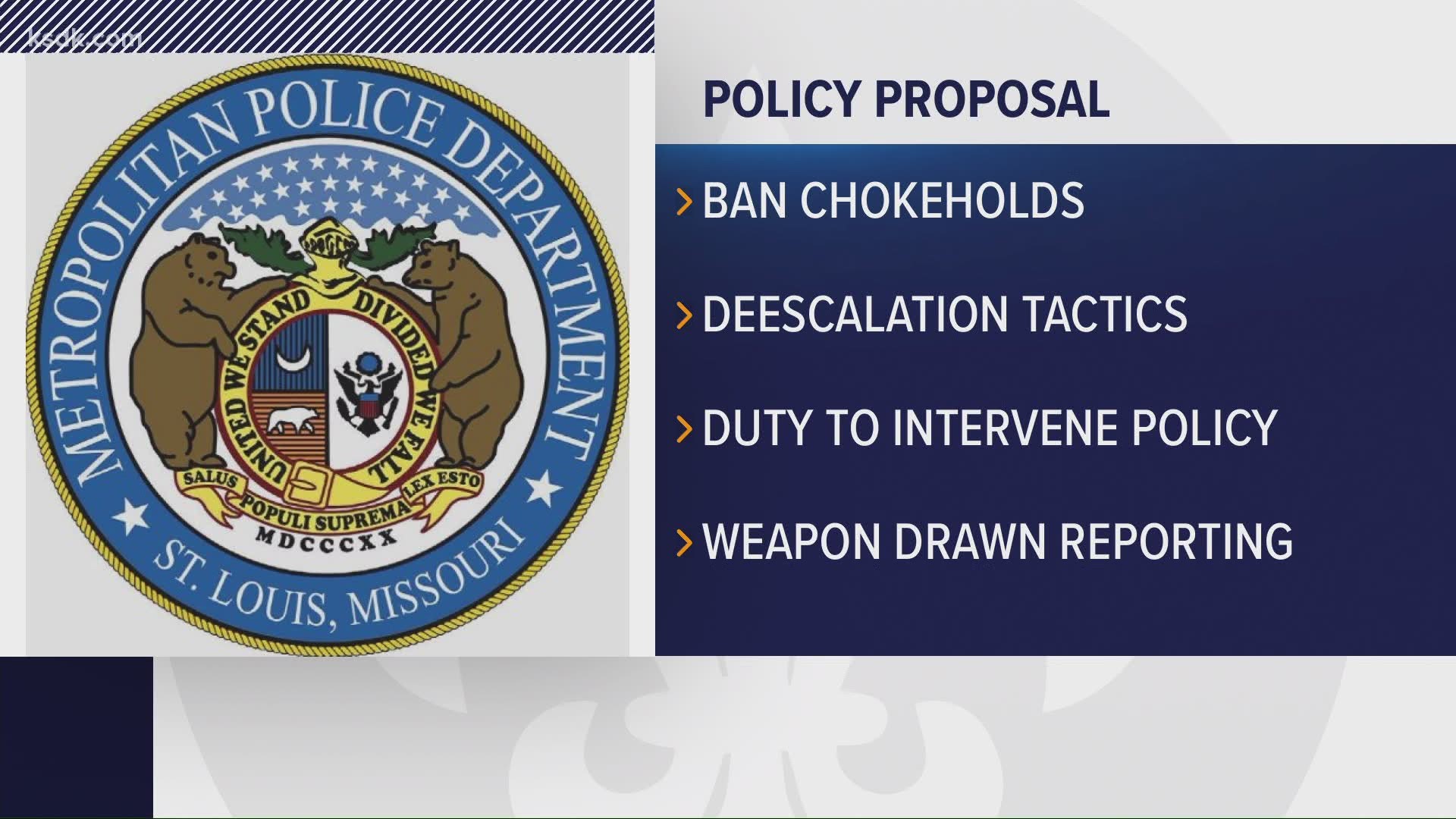ST. LOUIS — The St. Louis Board of Aldermen unanimously passed a bill Wednesday making changes to the use of force policy for the St. Louis Metropolitan Police Department.
Board Bill 63, which would ban chokeholds, require de-escalation tactics, ban no-knock warrants and other changes to the city's police department, passed unanimously during the board's Wednesday meeting. The bill now heads to Mayor Lyda Krewson's desk for her signature.
When the bill was proposed last month in the wake of George Floyd's death at the hands of a Minneapolis police officer, Board of Aldermen President Lewis Reed said the bill would require the department to update the policy to include:
- Ban on officers from using chokeholds or strangleholds as a use of force method;
- Require officers to use de-escalation tactics when appropriate and possible in place of use of force tactics;
- Establish a duty to intervene policy, which would require officers to either stop or attempt to stop another sworn employee when force is being inappropriately applied or is no longer required; and
- Edit the current use of force reporting policy to include comprehensive reporting and require officers to complete a report if a weapon is drawn and pointed at a civilian(s) regardless if the weapon was discharged or not.
In response to the proposed bill, a letter from Mayor Lyda Krewson, Public Safety Director Jimmie Edwards and Police Chief John Hayden said the department "regularly" reviews its policy, and many of the suggested changes are already part of the department's policy.
RELATED: St. Louis police department already abides by most changes suggested by board of aldermen bill
The first suggested change in the bill was a ban on officers from using chokeholds or strangleholds as a use of force method. The statement from the city said the department has not sanctioned any type of chokehold since installing a new policy in 2007.
The bill would also require officers to use de-escalation tactics when appropriate and possibly in place of use of force tactics. The city's response said de-escalation tactics have been a part of training since 2014, and officers are already encouraged and expected to use them whenever possible.
In response to the bill's call for a "duty to intervene policy", the city's statement said that is already in place.
"Officers are taught to consider their own individual conduct, and the moral obligations which may be created by another Officers' actions," the statement said.
The final change the bill called for was a use of force reporting policy to include comprehensive reporting. That means officers would be required to complete a report if a weapon was drawn and pointed at a civilian regardless if the weapon was discharged or not. The response from the city said the department requires reporting and documentation on any use of force, but that does not include the drawing of a weapon.
According to the use of force policy, "an officer will, if able, submit an Intra-Department Memorandum with complete details through the chain of command" whenever he or she:
- Discharges his/her firearm other than during qualification or training;
- Accidentally causes property damage or personal injury while qualifying or training at the Department firearms range or during private use (hunting, target practice, etc.);
- Uses other weapons or equipment as deadly force; or
- Witnesses any portion of an incident
Tuesday's letter from Krewson, Edwards and Hayden also voiced support for a national registry of "bad and corrupt police officers", national police training standards and the hiring of mental and behavioral health specialists to assist police officers.
The St. Louis Metropolitan Police Department and the St. Louis County Police Department are also undergoing privately-funded policy reviews.

